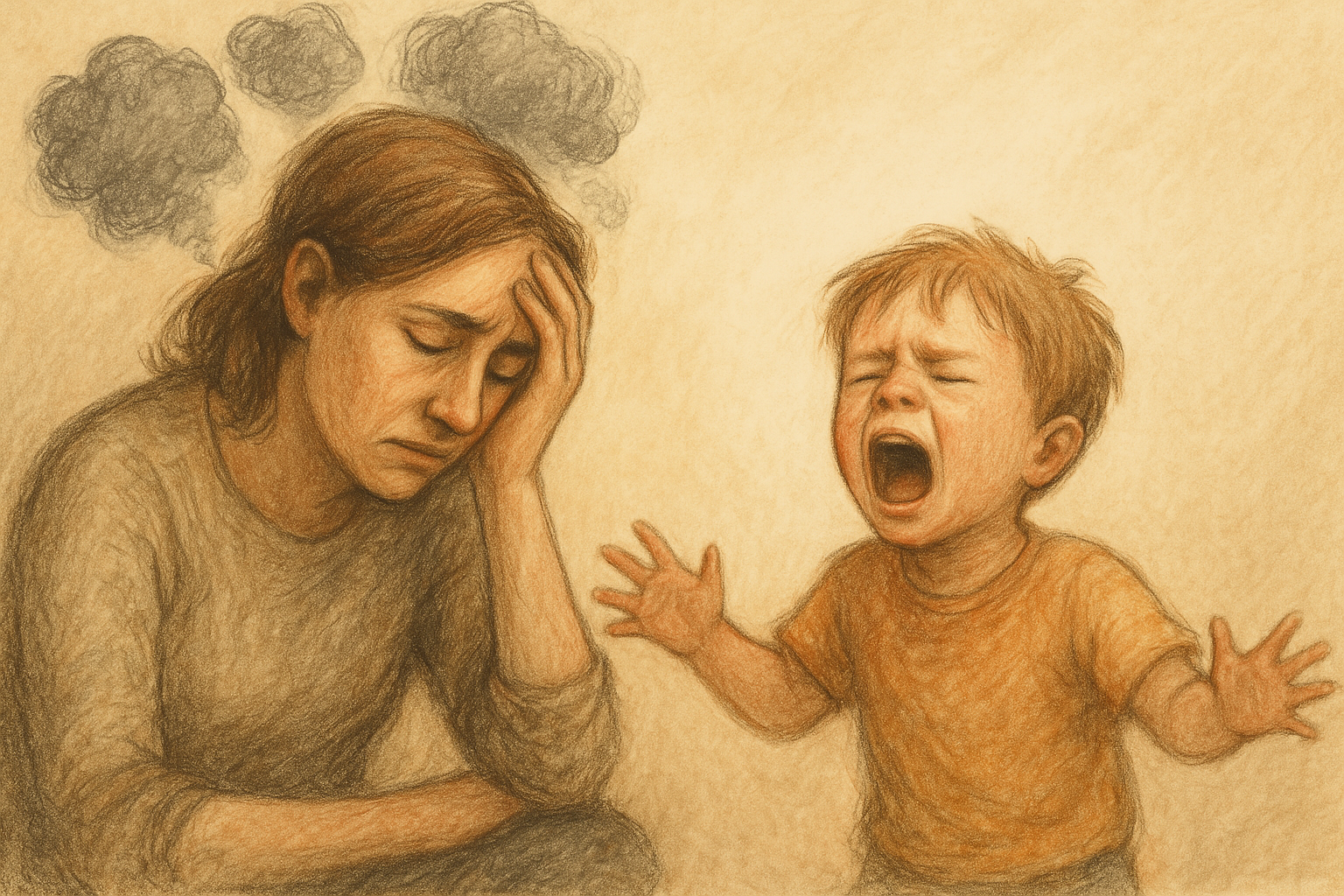ADHD Meltdowns in Kids: What They Really Mean & How to Respond With Emotional Regulation

The Reality of ADHD Meltdowns
If you’re parenting a child with ADHD, you’ve likely faced the storm: the screaming, the refusal, the sobbing over socks that don’t feel right. These moments, often labeled meltdowns, can feel chaotic, overwhelming, and even frightening. But what if they weren’t just outbursts?
What if ADHD meltdowns were a cry for regulation, not rebellion?
What’s Really Happening During a Meltdown?
Meltdowns in children with ADHD aren’t about attention-seeking or misbehavior. They're usually the result of emotional dysregulation, when a child’s nervous system becomes so overwhelmed that they lose access to self-control, communication, and logical thinking.
Here's what’s going on under the surface:
-
Poor emotional filtering: Children with ADHD process emotional stimuli intensely and often react before fully understanding the situation.
-
Cognitive overload: Tasks that seem small (like transitioning between activities or tying shoes) can stack into full overwhelm.
-
Low frustration tolerance: Minor setbacks can feel catastrophic when the brain is already dysregulated.
-
Delayed self-soothing: Unlike neurotypical peers, ADHD kids may struggle to “reset” on their own.
These moments aren’t calculated. They’re neurological distress signals.

The Emotional Regulation Gap
Most behavior-based parenting tools don’t address what ADHD meltdowns are really about: emotional flooding. When your child is mid-meltdown, traditional discipline won’t help and might make things worse.
The solution? Emotional regulation, for both you and your child.
At Bonding Health, we believe the key to reducing meltdowns is not punishment or perfection... but progress and pattern awareness.
Common Parent Responses (And Why They Backfire)
Let’s be honest, meltdowns are hard for parents too. You’re triggered, tired, and trying to hold it together.
Here’s what we often do instinctively:
-
Yell back
-
Threaten punishments
-
Beg or bribe
-
Withdraw emotionally
These reactions aren’t coming from a place of failure, they’re coming from your own dysregulation. And if you’re constantly walking on eggshells, you’re likely carrying your own unprocessed stress.
What’s needed is a reset for both of you.
Emotional Regulation in Real Time: What Helps
When a meltdown happens, here’s what to try instead:
-
Don’t talk — co-regulate. Lower your voice. Sit on the floor. Match their energy in a calm, non-threatening way.
-
Offer presence, not logic. This isn’t a teachable moment. Your job is to hold the container until the storm passes.
-
Name the feeling. Use simple words: “It looks like you're really frustrated right now.” Naming feelings reduces intensity.
-
Remove demands. Focus on calming, not completion.
-
Use sensory tools. Cold water, deep breathing, weighted blankets; anything that helps ground their body.
You are not fixing the behavior. You are helping them return to safety.
The 60-Second Reset (Qiks in Action)
At Bonding Health, we’ve built quick audio micro-interventions called Qiks, science-backed emotional resets that take under 60 seconds. They're designed to help parents:
-
Shift out of reactive mode
-
Re-center during hard moments
-
Build emotional regulation before things escalate
A single Qik can turn a spiral into a sigh of relief.
Imagine:
Your child is melting down, and instead of spiraling with them, you put in your earbuds, tap a Qik, and reconnect to your calm.
That calm becomes their calm.
Track Patterns, Not Perfection
Our mood and symptom tracker helps you notice patterns that trigger meltdowns. Over time, you’ll begin to see:
-
Which times of day are toughest
-
What behaviors precede dysregulation
-
How your own mood influences theirs
When you track behavior without judgment, you gain mastery without shame.
Final Thoughts: Replace the Shame With a System
You are not a bad parent.
Your child is not a problem.
You’re both navigating a world that wasn’t built for ADHD brains, and emotional regulation is the compass.
At Bonding Health, we believe meltdowns are an opportunity. Not for control, but for connection.
It starts with one small win. One breath. One Qik.
Download the Bonding Health App
Build emotional strength for your family — 60 seconds at a time.
👉 Download on the App Store


